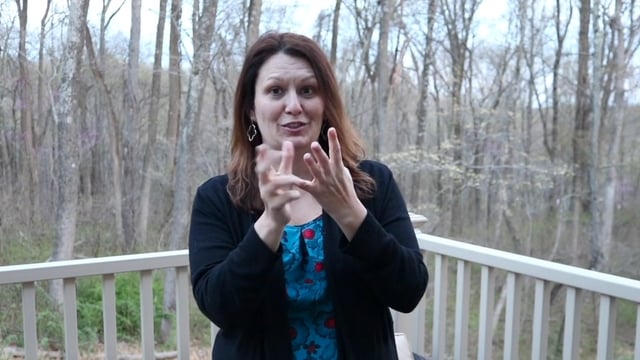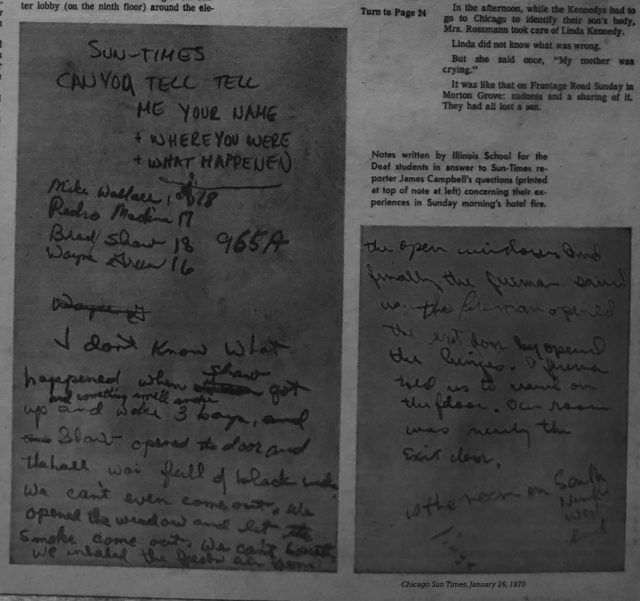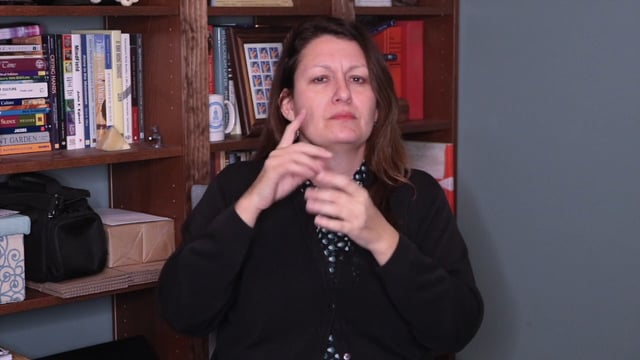This article originally appeared at i711.com.
In 1995, I had to go to the police station after I was assaulted. I was pretty shaken up, and barely in the mood to deal with bureaucracy. I was put in a room where there were seven empty desks and one desk with a typewriter. The policeman said he’d be back in a minute.
Did I mention that this was at 3 a.m.? The station wasn’t exactly hopping, and I didn’t have a two-way pager back then. I sat there for the longest time all alone, with nothing but the walls to look at. After about 30 minutes, I walked to the front desk and asked what the deal was. “Yes, ma’am, sit down and someone will be with you in a minute,” I was told. I asked if an interpreter was coming; yes, one was. After two hours, I again asked. Same response.
I was in that room by myself for agonizing hours. Believing an interpreter was coming, I kept worrying about whether the interpreter was qualified, the situation that had just happened, the medical attention I had gotten but still needed, and a million other things. Eventually, even with my mind racing, I ran out of things to think about, and began debating about whether I should leave or stay. I could have gotten up and walked out, but I was badly hurt and needed to file the report if I wanted the others to be caught. So I decided to stay and put up with the isolation – and that’s what it was, isolation – for another hour. Finally, at the four-hour mark, the policeman came back and slowly typed up a report before sending me on my way. I left bewildered, because there had been no communication and no explanation of what would happen next. I did call back that following week, but nothing ever happened. Yes, I could have sued – and I would probably have won – but I didn’t.
That experience has never left me. Five years later, I visited a maximum security correctional facility in New York as part of a poetry series developed by Peter Cook and Kenny Lerner of The Flying Words Project developed. While there, I was impressed by the large deaf inmate population. They were inmates who were in for murder, rape, robbery, you name it – but what impressed me was how it seemed like an equal community in that prison. The deaf inmates had something valuable: access. The prison had American Sign Language classes for hearing inmates, interpreters, captioned television, and other accessible options for the deaf inmates.
Fast forward to a couple of years ago. A friend got sent to prison where he was the only deaf inmate out of about 700 inmates. The differences at that prison from the one I’d visited in New York were startling. For one thing, he didn’t have anyone to talk with in sign language, except for the occasional visitor. That, for me, is the most isolating act, in or out of prison – especially after what I went through in 1995. I became extremely lonely and isolated after only four hours. What would it be like for weeks upon months upon years? The emotional effects of that lack of sign language were almost immediately apparent with my friend.
Even though he was a convicted felon, he still needed the same basic rights as every other inmate to survive and to do his time. He didn’t have an interpreter for counseling sessions. When he did finally get a TTY, he had to ask for permission and then go into a locked room; however, the person whose office the TTY was located in wasn’t always in. Hearing inmates had more access to phones than he did.
He became increasingly isolated in this prison within the prison. His letters and phone calls became increasingly despondent. Fortunately, with the advocacy from community supporters, my friend was able to get a videophone installed at the prison. I’ll never forget that first phone call. He was absolutely thrilled, and was so much more motivated to serve his time with the new support system he had.
Another story: I remember going to a prison once as a deaf interpreter, and watching the sergeant at the front desk asking why we were there. When the lawyer said, “The consumer is deaf,” the sergeant went pale and said, “He’s deaf?!?!” and ran to a phone. It turns out the system had placed the deaf guy in a maximum security section filled with hardened criminals simply because he wouldn’t respond to their demands. They thought this guy was being difficult and decided to teach him a lesson, even though he was accused of a minor crime. By the time we were there, this guy had been inside for seven days. Later, the charges were dropped when evidence showed he didn’t commit the crime. But the emotional trauma inflicted upon him was permanent; he was terrified when he came out to meet us.
It’s frustrating to think of all the deaf inmates in the country who may be isolated simply because they think they have no rights as criminals or they don’t understand what’s happening. Regardless of the gravity of their crime, criminals are people and we need to ensure they receive full communication access and equal opportunities. It’s only humane.
Copyrighted material. This article can not be copied, reproduced, or redistributed without the written consent of the author.





Unconscionable.